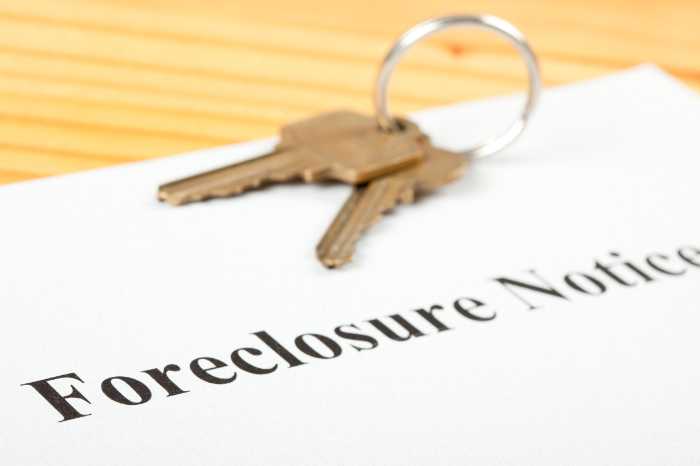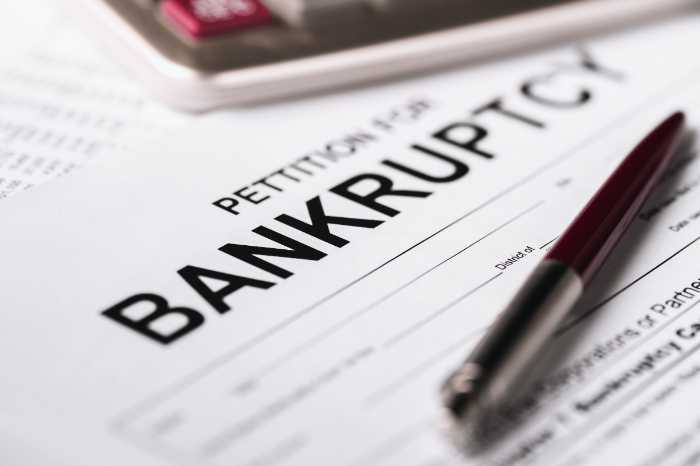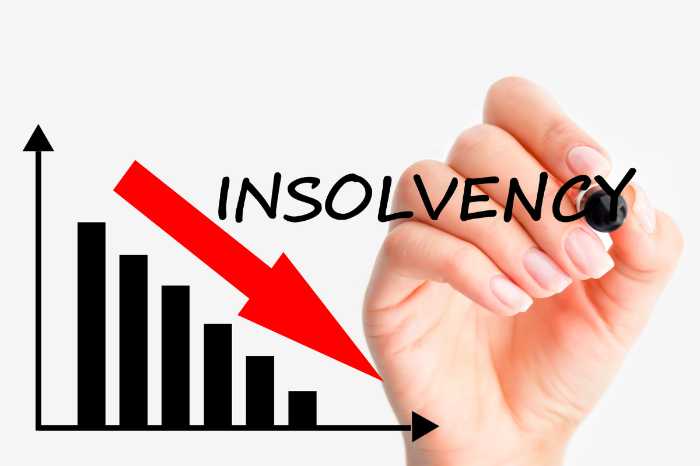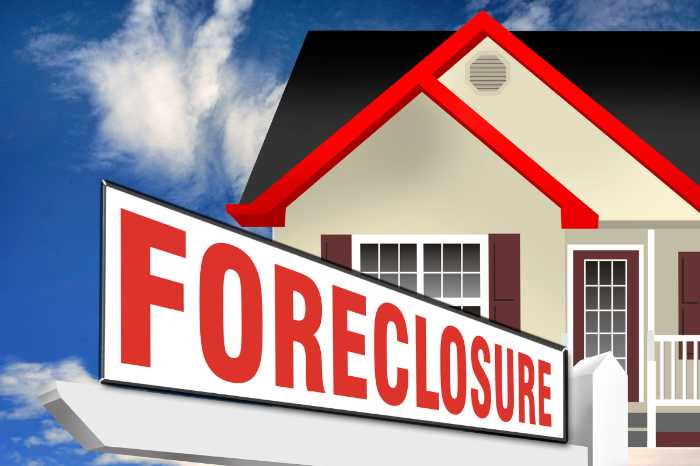What happens if your home goes into foreclosure, and what to expect with the foreclosure process.

What is a foreclosure in Canada?
Foreclosure is a legal process that happens when a homeowner is unable to make their mortgage payments. The mortgage lender will then take ownership of the home and sell it to recoup its losses.
Foreclosure can be a lengthy and stressful process, so it’s important to understand your rights as a homeowner, how mortgage foreclosure works, and what you can do to try and prevent foreclosure from happening.
What are the consequences of foreclosure?
Foreclosure can have several negative consequences, both for the homeowner and for their credit rating. The mortgage holder may end up owing money to the lender after the sale of the home, and they will also likely see a significant drop in their credit score. This can make it difficult to obtain new lines of credit or loans in the future. Foreclosure can also stay on your credit report for up to 10 years, making it hard to rebuild your credit.
What are some tips for avoiding foreclosure?
If you’re struggling to make your mortgage payments, there are a few things you can do to try and avoid foreclosure. First, you should contact your lender and explain your financial situation. They may be able to work with you to modify your loan or set up a payment plan.
You can also try to sell your home yourself before the foreclosure process is complete. This can help you avoid some of the negative consequences of foreclosure, like owing money to the lender or having a foreclosure on your credit report.
How does the foreclosure process work in Canada?

The foreclosure process in Canada can vary depending on the province you live in. Generally, the lender will send a notice of default to the homeowner if they have several missed payments. The homeowner then has a certain amount of time to catch up on their payments.
If they are still unable to make their mortgage payments, the lender can then file for foreclosure. This will start the legal process, and the homeowner will eventually have to vacate the property. The home will then be sold at auction, and the proceeds will go to the lender.
What are the stages of foreclosure?
There are generally four stages of foreclosure:
Stag 1: Notice of Default
The lender will send you a notice that you are in default of your payments. At this point, you will usually have a grace period of 30-60 days to catch up on your payments.
Stage 2: Notice of Sale
If you do not catch up on your payments, the lender will send you a notice of sale. This means they have scheduled a date to sell your home at auction.
Stage 3: The Auction
On the date of the foreclosure auction, your home will be sold to the highest bidder.
Stage 4: Possession
If you do not pay off the debt owed to the lender, they may file for possession of your home. This means they can legally evict you from your home.
Deciding to declare bankruptcy if you can’t make your mortgage payment
If you’re struggling to make your mortgage payments, you may want to consider filing for bankruptcy. This can help you get out of your mortgage and avoid foreclosure.
However, it’s important to understand that when you declare bankruptcy it will hurt your credit score and can stay on your credit report for up to 10 years. You should speak with a bankruptcy lawyer to see if this is the right option for you.
Refinancing your home to lower your monthly mortgage payments
Refinancing your home can be a good way to avoid foreclosure. This is when you take out a new loan with a lower interest rate and use the money to pay off your old loan. This can lower your monthly payments and make it easier to afford your mortgage. However, you will likely have to pay fees to refinance your home, and it may take a while to get approved for a new loan.
Steps to refinance your home to prevent foreclosure:
- Speak with your mortgage broker or lender to see if you qualify for refinancing.
- Research different lenders and compare interest rates.
- Apply for a new loan and use the money to pay off your old loan.
- Make your new monthly payments on time to avoid foreclosure.
Power of sale
A power of sale is when the lender sells your home without going through the court system. This is different from a mortgage foreclosure, where the homeowner still has some rights and can try to avoid the sale of their home.
Power of sales are much less common in Canada and typically only happens if the homeowner has failed to make their mortgage payments for an extended period of time.
What are a homeowners rights in a power of sale?
If your home is being sold through a power of sale, you generally won’t have many rights as a homeowner. However, you may be able to negotiate with the lender to try and keep your home.
You should speak with a lawyer to understand your rights in a power of sale situation.
Foreclosure vs. Power of Sale
With foreclosure, the homeowner still has some rights and can try to avoid the sale of their home. This is not the case with a power of sale, where the homeowner generally has no rights. Foreclosure can also take much longer than a power of sale, as the process goes through the court system.
Mortgage bankruptcy
Mortgage bankruptcy is when you file for bankruptcy and include your mortgage in the bankruptcy. This can help you get out of your mortgage and avoid foreclosure.
Foreclosure vs. mortgage bankruptcy
Facing foreclosure is when the lender sells your home to repay your debt. Mortgage bankruptcy is when the mortgage holder (you) files for bankruptcy and cancels their mortgage. This can help you avoid foreclosure, but similar to other options, it will have a negative impact on your credit score.
Regular bankruptcy vs. mortgage bankruptcy

Regular bankruptcy is when you file for bankruptcy and include all of your debts. Mortgage bankruptcy is when you file for bankruptcy and only include your mortgage debt.
Mortgage bankruptcy can help you avoid foreclosure, but it may not be the best option if you have other debts that you can’t afford to pay.
What is a licensed insolvency trustee?
A licensed insolvency trustee is a professional who can help you file for bankruptcy. They will review your financial situation and help you decide if bankruptcy is the right option for you.
If you do decide to file for bankruptcy, the trustee will help you with the process and make sure that everything is done correctly.
Can a licensed insolvency trustee help with foreclosure?

Yes, a licensed insolvency trustee can help you if you’re struggling to make your mortgage payments and are considering foreclosure or bankruptcy.
They can help you understand your options and what the consequences will be. They can also help you negotiate with your lender to try and keep your home.
What are your rights as a homeowner in Canada if your home is in foreclosure?
As a homeowner in Canada, you have certain rights during the foreclosure process. For example, you have the right to be notified by the mortgage lender if they are planning to foreclose on your home.
You also have the right to dispute the foreclosure and try to keep your home. However, ultimately, the decision of whether or not to foreclose on your home is up to the lender.
How much notice is a mortgage lender required to give you when planning forclosure?
In Canada, lenders are required to give you at least 21 days notice before they can start the foreclosure process. This gives you some time to catch up on your missed payments or try to sell your home.
How to dispute a forclosure

If you want to dispute the mortgage foreclosure, you can file a notice of objection with the court. This will stop the foreclosure process and give you some time to try to work things out with the lender. However, it’s important to note that this is not a permanent solution and the foreclosure process can start again if you are still unable to make your mortgage payments.
How to file a notice of objection
If you want to file a notice of objection, you can contact the court directly or speak to a lawyer.
You will need to fill out some forms and provide evidence that you are able to make your payments. Once the forms are filed, the court will review your case and decide whether or not to stop the foreclosure process.
It’s important to note that this is not a permanent solution and the foreclosure process can start again if you are still unable to pay your mortgage balance.
What happens if the property getting foreclosed is a rental property?
If the property being foreclosed is a rental property, the tenants will generally have to move out once the foreclosure is complete. However, the tenants may be able to stay in the home if they can find another lender to take over the mortgage payments.
Mortgage foreclosure process and timeline – save funds and prepare to move on short notice
The mortgage foreclosure process can take several months, and it’s important to be prepared. You should start by saving up money so you can move on short notice. Since you won’t be able to apply for another mortgage loan, you’ll need to start looking for somewhere to rent.
You should also contact a real estate agent to help you sell your home. Finally, you should speak with a lawyer to understand your rights during the foreclosure proceedings.
Find out how to get debt relief without losing your home to foreclosure.
If you’re struggling to make your mortgage payments, you may be able to get debt relief without losing your home to foreclosure. There are a few options available, such as refinancing your mortgage or consolidating your debt. You can also try negotiating with your mortgage lender to try and get a loan modification (lower interest rate or a longer repayment period).
However, keep in mind that these options may not be available if you’re already behind on your payments. If you’re struggling to make ends meet, it’s important to speak with a financial advisor to see what options are available to you.
Is there any way to get your home back after it’s been foreclosed?

It is possible to get your home back after it’s been foreclosed, but it’s not easy.
You’ll need to negotiate with the new owners and come up with a plan to make your mortgage payment. If you’re able to do this, you can file a notice of redemption with the court. This will cancel the foreclosure and allow you to keep your home.
However, if you’re unable to continue paying off your mortgage balance, you may lose your home again.
Notice of redemption
A notice of redemption is a document that you can file with the court to cancel the foreclosure. This will allow you to keep your home, but you’ll need to make your mortgage payment.
Redemption period in Canada
In Canada, the redemption period is typically six months. This means that you have six months to make your mortgage payment and keep your home.
How foreclosure affects your ability to apply for mortgage loans in the future
Foreclosure will negatively affect your credit score and make it difficult to apply for mortgage loans in the future. Lenders will be hesitant to give you a loan if they think you’re at risk of defaulting again.
As such, it’s important to take steps to improve your credit score after foreclosure. You can do this by making all of your payments on time and paying any outstanding debt.
Coping with a foreclosure on your home
Dealing with a mortgage foreclosure can be difficult, both emotionally and financially. It’s important to understand that you’re not alone and there are resources available to help you.
If you’re struggling to make your mortgage payments and facing foreclosure, you can contact your lender to try and work out a payment plan. You can also contact a housing counselor for free advice.





